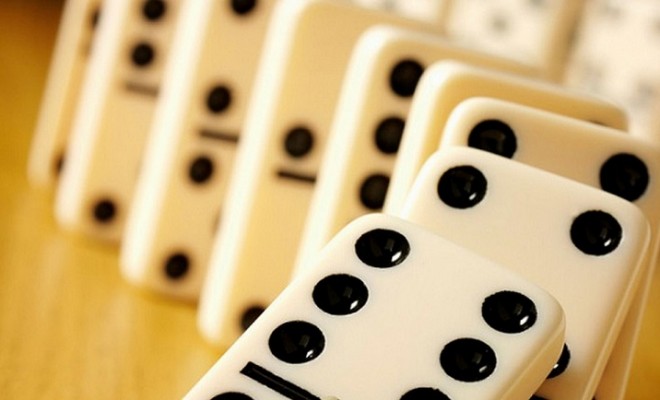
The coronavirus chain reaction
The coronavirus and lockdowns have brought us tons of “who’d have thought?” developments, from the easing of air pollution to the shift to telemedicine, the resurgence of phone calls, and crazes for jigsaw puzzles and bread baking.
Why it matters: Society has become a lab experiment for what happens — economically, culturally, politically — when commerce and socializing are all but banned. The surprise effects we are witnessing may stick around for some time.
Driving the news: The severe disruptions to our lives have taken all sorts of turns, from dire to comic — and there’s no end in sight.
For many people, the “new normal” involves a bombardment of tragic news about death, illness and loss, punctuated by escapism (Netflix binges, Chef Boyardee dinners), teleworking or telestudying, and waiting for unemployment and stimulus checks.
- “Cocooning never really left, but in this seminal time it’s come raging back,” Faith Popcorn, the trend guru who coined the term in 1981, said in an interview for a South African business podcast.
- On the down side: Hoarding (of toilet paper, masks and gloves, etc.) has reared its head, and alcohol and pot sales are way up.
- On the up side: The environment is improving — however temporarily — and wildlife is flourishing. With tourists banished from national parks, Yosemite’s bear population has quadrupled, the LA Times reports.
On the business and economic front: The most obvious changes have included the stunning and hard-to-measure rise in unemployment, and the huge drop in retail sales (8.7% in March alone). But they don’t stop there.
- The plastics industry is trying to get plastic bag bans overturned, arguing that other reusable bags are breeding grounds for COVID-19. (The mayor of Boston has bought the argument and suspended the city’s bag ban.)
- The tech world is beefing up cybersecurity efforts, as telecommuting speeds up migration to the cloud.
- Companies are holding their annual meetings online for the first time — which is dampening corporate proxy season, when activist shareholders try to push their agendas.
- Discussion around corporate environmental, social and governance (ESG) goals is shifting. “The coronavirus has brought workforce management and other social sustainability issues into the limelight as shareholder engagement on climate change has slowed to nearly a standstill,” per S&P Global Market Intelligence.
In agriculture, farmers are dumping milk, onions, beans and cabbage that they can no longer sell.
- Fishermen are giving away their catches — because 70% of seafood is purchased while eating out (per The Counter).
On the societal front: Violent crime is down — but domestic violence is seen as rising.
- Compulsive purchases of hand sanitizer and disinfectants have morphed into runs on hair dye and clippers.
- Burgeoning unemployment and household financial troubles are raising stress levels for Americans, with consequences that could last for years, says Amy Zalman, CEO of Prescient, a future-oriented consultancy, and professor at Georgetown University.
- “The ground is being laid for terrible psychological disorders and stressed families,” Zalman tells Axios.
Among Zalman’s top picks for unforeseen trends around COVID-19: The rise of virtual doctor’s visits, the unleashing of people’s creativity around face masks, the advent of “smart toilets” that may one day be able to detect the disease, and the demise of the handshake.
On the cultural front:
- The “Give-a-Sheet” movement has artists designing works on individual sheets of toilet paper and auctioning them off to raise money for the WHO’s COVID-19 Solidarity Response Fund.
- A clever farm in Silicon Valley has introduced Goat 2 Meeting, where you can pay to have a goat, llama or other animal join your Zoom videoconference.
- People are having weird dreams, adopting so many pets that shelters are running short, obsessing over the imprisoned Joe Exotic from “Tiger King,” stress-eating Oreos and Ruffles, and making brilliant viral videos from home quarantine.
“A lot of the same behavior that we saw after 9/11, we’re seeing today,” Anne Beall, head of a market research firm in Chicago, tells Axios. “A lot of people were eating comfort foods, trying to get more upbeat entertainment in their homes — and essentially address the emotions that they’re feeling, which are largely fear and anxiety.”
My thought bubble: Who would have thought that we New Yorkers — ornery as we are — would stand in polite lines on the sidewalk for entry into stores, or pause each evening at 7:00 to cheer from our balconies and windows for the brave people who supply us, serve us, care for us, and cure us?
Πηγή: axios.com




